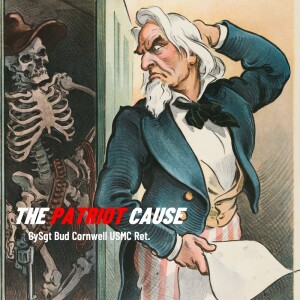
- Podcast Features
-
Monetization
-
Ads Marketplace
Join Ads Marketplace to earn through podcast sponsorships.
-
PodAds
Manage your ads with dynamic ad insertion capability.
-
Apple Podcasts Subscriptions Integration
Monetize with Apple Podcasts Subscriptions via Podbean.
-
Live Streaming
Earn rewards and recurring income from Fan Club membership.
-
Ads Marketplace
- Podbean App
-
Help and Support
-
Help Center
Get the answers and support you need.
-
Podbean Academy
Resources and guides to launch, grow, and monetize podcast.
-
Podbean Blog
Stay updated with the latest podcasting tips and trends.
-
What’s New
Check out our newest and recently released features!
-
Podcasting Smarter
Podcast interviews, best practices, and helpful tips.
-
Help Center
-
Popular Topics
-
How to Start a Podcast
The step-by-step guide to start your own podcast.
-
How to Start a Live Podcast
Create the best live podcast and engage your audience.
-
How to Monetize a Podcast
Tips on making the decision to monetize your podcast.
-
How to Promote Your Podcast
The best ways to get more eyes and ears on your podcast.
-
Podcast Advertising 101
Everything you need to know about podcast advertising.
-
Mobile Podcast Recording Guide
The ultimate guide to recording a podcast on your phone.
-
How to Use Group Recording
Steps to set up and use group recording in the Podbean app.
-
How to Start a Podcast
-
Podcasting
- Podcast Features
-
Monetization
-
Ads Marketplace
Join Ads Marketplace to earn through podcast sponsorships.
-
PodAds
Manage your ads with dynamic ad insertion capability.
-
Apple Podcasts Subscriptions Integration
Monetize with Apple Podcasts Subscriptions via Podbean.
-
Live Streaming
Earn rewards and recurring income from Fan Club membership.
-
Ads Marketplace
- Podbean App
- Advertisers
- Enterprise
- Pricing
-
Resources
-
Help and Support
-
Help Center
Get the answers and support you need.
-
Podbean Academy
Resources and guides to launch, grow, and monetize podcast.
-
Podbean Blog
Stay updated with the latest podcasting tips and trends.
-
What’s New
Check out our newest and recently released features!
-
Podcasting Smarter
Podcast interviews, best practices, and helpful tips.
-
Help Center
-
Popular Topics
-
How to Start a Podcast
The step-by-step guide to start your own podcast.
-
How to Start a Live Podcast
Create the best live podcast and engage your audience.
-
How to Monetize a Podcast
Tips on making the decision to monetize your podcast.
-
How to Promote Your Podcast
The best ways to get more eyes and ears on your podcast.
-
Podcast Advertising 101
Everything you need to know about podcast advertising.
-
Mobile Podcast Recording Guide
The ultimate guide to recording a podcast on your phone.
-
How to Use Group Recording
Steps to set up and use group recording in the Podbean app.
-
How to Start a Podcast
-
Help and Support
- Discover

Executive orders are issued by the President of the United States, acting in his capacity as head of the executive branch, directing a federal official or administrative agency to engage in a course of action or refrain from a course of action. They are enforceable to the extent that they represent a valid exercise of the President’s power (i.e. the action must be within the president’s constitutional authority).
There is no specific provision in the United States Constitution for Executive Orders. However, Section 1 of Article II (the Executive Power) is generally viewed as granting authority for such orders. Section 1 says simply: “The Executive Power shall be vested in a President of the United States of America.” Sections 3 and 4 of Article II provide potential limitations on executive action (including Executive Orders) in stating that the President shall “take Care that the Laws be faithfully executed” and in providing for impeachment and removal of the President in cases where the President is convicted of “Treason, Bribery, or other high Crimes and Misdemeanors."
Tracking regulatory changes in the Biden era
https://www.brookings.edu/articles/tracking-regulatory-changes-in-the-biden-era/
Reducing Regulation and Controlling Regulatory Costs
https://www.federalregister.gov/documents/2017/02/03/2017-02451/reducing-regulation-and-controlling-regulatory-costs
More Episodes
 2025-04-11
2025-04-11
 167
167
 2025-03-27
2025-03-27
 64
64
 2025-03-23
2025-03-23
 34
34
 2025-03-19
2025-03-19
 35
35
 2025-02-24
2025-02-24
 63
63
 2025-02-18
2025-02-18
 36
36
 2024-12-04
2024-12-04
 89
89
 2024-12-03
2024-12-03
 1.4k
1.4k
 2024-11-19
2024-11-19
 28
28
 2024-11-04
2024-11-04
 52
52
 2024-10-02
2024-10-02
 60
60
 2024-09-12
2024-09-12
 36
36
 2024-09-11
2024-09-11
 32
32
 2024-09-10
2024-09-10
 30
30
 2024-09-09
2024-09-09
 22
22
 2024-09-04
2024-09-04
 107
107
Create your
podcast in
minutes
- Full-featured podcast site
- Unlimited storage and bandwidth
- Comprehensive podcast stats
- Distribute to Apple Podcasts, Spotify, and more
- Make money with your podcast
It is Free
- Privacy Policy
- Cookie Policy
- Terms of Use
- Consent Preferences
- Copyright © 2015-2025 Podbean.com



